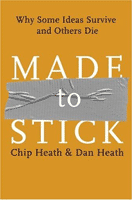
Employees first: Strategies for service
The customer is king, an old service mantra says. But today a few industry leaders argue the employee, not the customer, is most important. "Take great care of your employees and they will take great care of your customers," said Mike Jannini, Executive Vice President of Marriott International, at the "Creating Value Through Service" symposium. The event was organized by the W. P. Carey School’s Center for Services Leadership and the Center of Service Marketing and Management at Fudan University.






